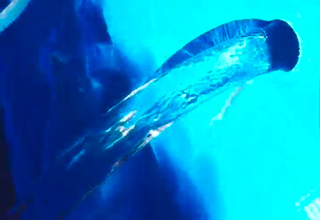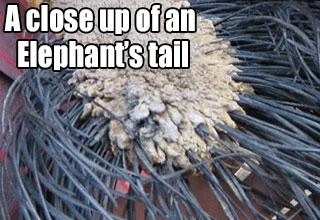Continued
Here, though, Nietzsche himself has brought contradiction. For while he has almost praised the strive for (what may be termed) "divine" and non-earthly goals, his essay on "Uses and Disadvantages of History for Life" considers (perhaps ironically, maybe even sarcastically) cattle to be among the happiest of beings. "They do not know what is meant by yesterday or today... and thus [are] neither melancholy nor bored." He goes on to speak of the disdain for which a mortal and reasoned man must observe this, "though he thinks himself better than the animals because he is human, he cannot help envying them their happiness -what they have, a life neither bored nor painful, is precisely what he wants, yet he cannot have it because he refuses to be like an animal."
I admire Nietzsche for this allegorical depiction of happiness, I believe it speaks volumes to what he admits to be happiness as well as unhappiness, pain and suffering. He links it all to a human condition of misery through remembrance. It is not the repeated (but immediate) act or experience of hardship or illness or sadness or loneliness which leads a man to become perpetually miserable or forlorn; it is only his memory of the constants of pain and sadness. To contract ones horizons to a point no farther than to the tip of ones nose (and thus live like an animal, continually and blissfully unaware), is what would allow a mans happiness. "Thus the animal lives unhistorical: for it is contained in the present it does not know how to dissimulate, it conceals nothing and at every instant appears wholly as what it is; it can therefore never be anything but honest." Does this not contradict Nietzsches ideal of the "superman"? Does he now, at this early point in his philosophical career, tear out the foundations of his whole ideology which is based on the loftiest ideals of the self and the absolute rationale and control of the ego? Or is Nietzsche merely using this anecdote to make the point, that when man lives too much in yesterday and too much in tomorrow, then today cannot be consumed, digested and enjoyed? That when a man's horizon stretches too far before and behind him, he is unable to have what gains and happiness his super, pure-ego-driven self has been able to grasp for today? That there can be no joie de vivre? Or is it more of an idea of perpetual contentment in a moment that, "if only it is present uninterruptedly and makes happy, is incomparably more happiness than the greatest happiness that comes only as an episode, as it were a piece of waywardness or folly, in a continuum of joylessness, desire and privation"?
Here is a point where I must disagree with good ol Freddy: "Imagine the extremest possible example of man who did not posses the power of forgetting at all and who was thus condemned to see everywhere a state of becoming: such a man would no longer believe in his own being, would no longer believe in himself, would see everything flowing asunder in moving points and would lose himself in this stream of becoming he would in the end hardly dare to raise a finger." This reminds me of the aliens from Tralfamadore in Kurt Vonneguts Slaughter House-Five. The Tralfamadorians can see in four dimensions and thus have already seen every instant of their lives and therefore resign themselves to a fatalistic view of the universe. They believe they cannot change anything about their fates, but that they can choose to focus upon any moment in their lives. It may sound silly, but no more ridiculous than Nietzsches using cattle (as an exaggeration) to represent a perfectly happy, unhistorical life. Vonnegut uses the aliens philosophy to satirize fatalism in the face of free will. It is an interesting device used to get a point across, such exaggeration truly causes one to take pause to digest what has just been stated.
I do understand what Nietzsche meant in all this. "In regard to the belief that the cattle, dwells within a horizon reduced almost to a point, and yet lives in a certain degree of happiness, or at least without boredom and dissimulation; we shall thus have to account the capacity to feel to a certain degree unhistorical as being more vital and more fundamental, inasmuch as it constitutes the foundation upon which alone anything can sound, healthy and great, anything truly human, can grow." Ah, finally, Nietzsche has pulled away from the quite obvious over-simplification of his analogy of the cattle, and given true substance towards making his point. That a man's ability to control his own mind and recollection are of great (though resultant) importance to the ability it gives for a man to seek those greater things which he no longer must dwell upon. He has now become free to think and strive and consume and be consumed because of this pervasive, animalistic happiness! "It is the condition in which one is the least capable of being just; narrow-minded, ungrateful to the past, blind to dangers, deaf to warnings, one is a little vortex of life in a dead sea of darkness and oblivion: and yet this condition -unhistorical, anti historical through and through- is the womb not only of the unjust but of every just deed too."
This freedom of experience from memory allows a new level of self-determination. His universe and horizons, past and future, have degraded from an ominous and nebulous and incomprehensible beast into something more fathomable. It is all now something that can be dealt with; a man can now discount his past, ignore his future as just an eventuality, and he can truly have the present. "He forgets most things so as to do one thing, he is unjust towards what lies behind him, and he recognizes the rights only of that which is now come into being and no other rights whatever." This unhistorical man may find the past and the future a mere annoyance, no longer a thing to be feared or dreaded. No worry or anxiety towards the future, no regret or horror in the past.
This is true freedom! And ask any truly free man whether he is happy and his reply must surely be, "very much so". Are these ideas put forth by Nietzsche truly contrary to nihilism? I posit no. This is true release to happiness, the allowance of the destruction of the past as meaningless and the ever approaching future as impotent. Only the current thought in a mind or word on a tongue or breath in a lung may be argued to exist or not. That is all that can be debated, the past is meaningless and so is the future, only today may be debated, only today may be enjoyed, only today may bring happiness. This may over-simplify nihilism (or be negated entirely) in its more intelligently-formulated manifestations, but for the purposes of this paper, I think I made a hell of a good point.
Nietzsche ended his essay most brilliantly, with a poignant and particularly appropriate excerpt from Giacomo Leopardi, a 19th century Italian philosopher (and major downer to read):
Nothing lives that is worthy
Thy agitation, and the earth deserves not a sigh.
Our being is pain and boredom and the world is dirt--nothing more.
Be calm.






8 Comments